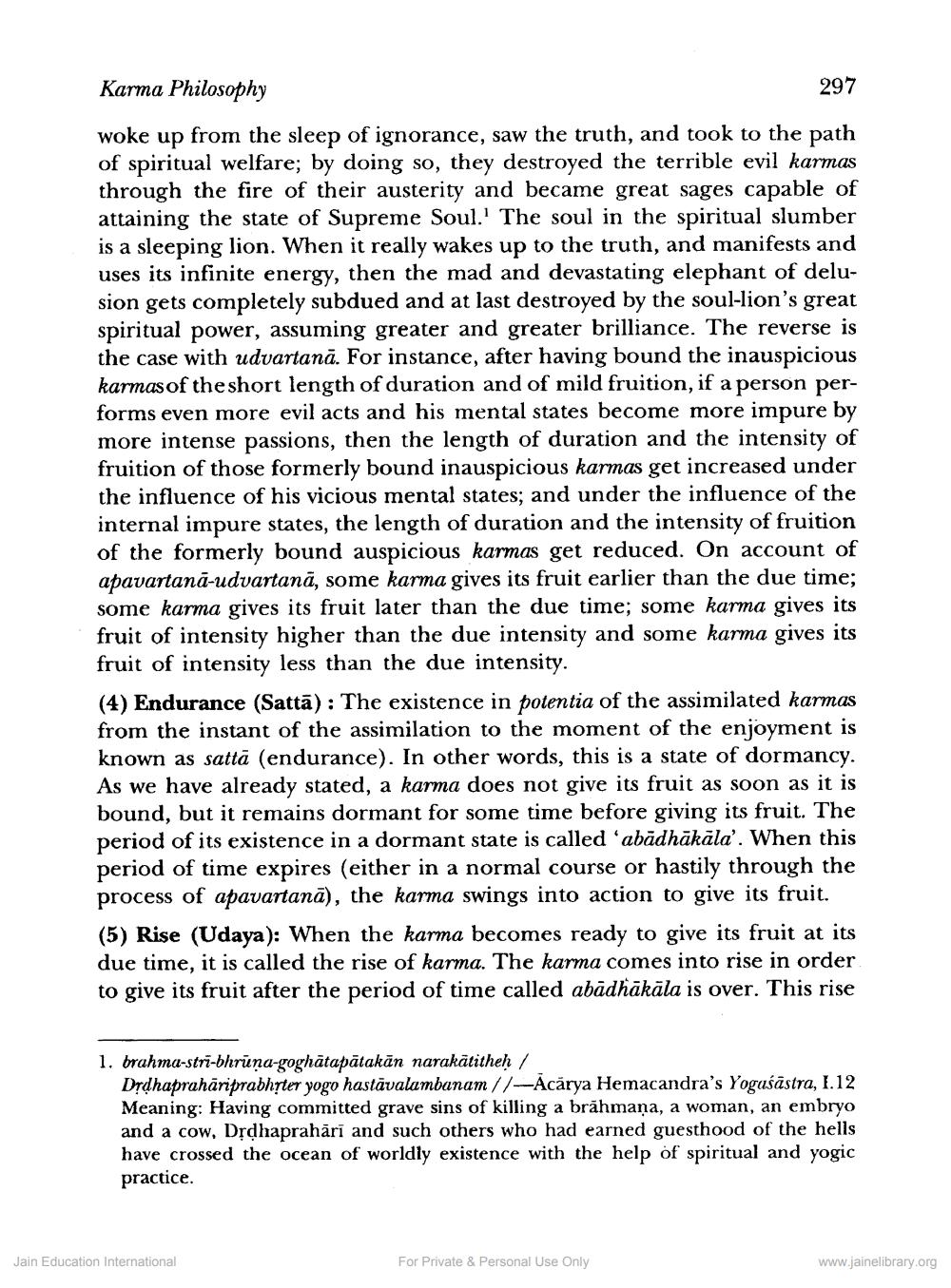________________
Karma Philosophy
297
woke up from the sleep of ignorance, saw the truth, and took to the path of spiritual welfare; by doing so, they destroyed the terrible evil karmas through the fire of their austerity and became great sages capable of attaining the state of Supreme Soul.' The soul in the spiritual slumber is a sleeping lion. When it really wakes up to the truth, and manifests and uses its infinite energy, then the mad and devastating elephant of delusion gets completely subdued and at last destroyed by the soul-lion's great spiritual power, assuming greater and greater brilliance. The reverse is the case with udvartanā. For instance, after having bound the inauspicious karmas of the short length of duration and of mild fruition, if a person performs even more evil acts and his mental states become more impure by more intense passions, then the length of duration and the intensity of fruition of those formerly bound inauspicious karmas get increased under the influence of his vicious mental states; and under the influence of the internal impure states, the length of duration and the intensity of fruition of the formerly bound auspicious karmas get reduced. On account of apavartanā-udvartanā, some karma gives its fruit earlier than the due time; some karma gives its fruit later than the due time; some karma gives its fruit of intensity higher than the due intensity and some karma gives its fruit of intensity less than the due intensity. (4) Endurance (Sattā): The existence in potentia of the assimilated karmas from the instant of the assimilation to the moment of the enjoyment is known as sattā (endurance). In other words, this is a state of dormancy. As we have already stated, a karma does not give its fruit as soon as it is bound, but it remains dormant for some time before giving its fruit. The period of its existence in a dormant state is called 'abādhākāla'. When this period of time expires (either in a normal course or hastily through the process of apavartanā), the karma swings into action to give its fruit. (5) Rise (Udaya): When the karma becomes ready to give its fruit at its due time, it is called the rise of karma. The karma comes into rise in order to give its fruit after the period of time called abādhākāla is over. This rise
1. brahma-stri-bhrūna-goghātapātakān narakātitheh /
Dydhaprahāriprabhyter yogo hastāvalambanam //-Acärya Hemacandra's Yogaśāstra, 1.12 Meaning: Having committed grave sins of killing a brāhmaṇa, a woman, an embryo and a cow, Drdhaprahāri and such others who had earned guesthood of the hells have crossed the ocean of worldly existence with the help of spiritual and yogic practice.
Jain Education International
For Private & Personal Use Only
www.jainelibrary.org




